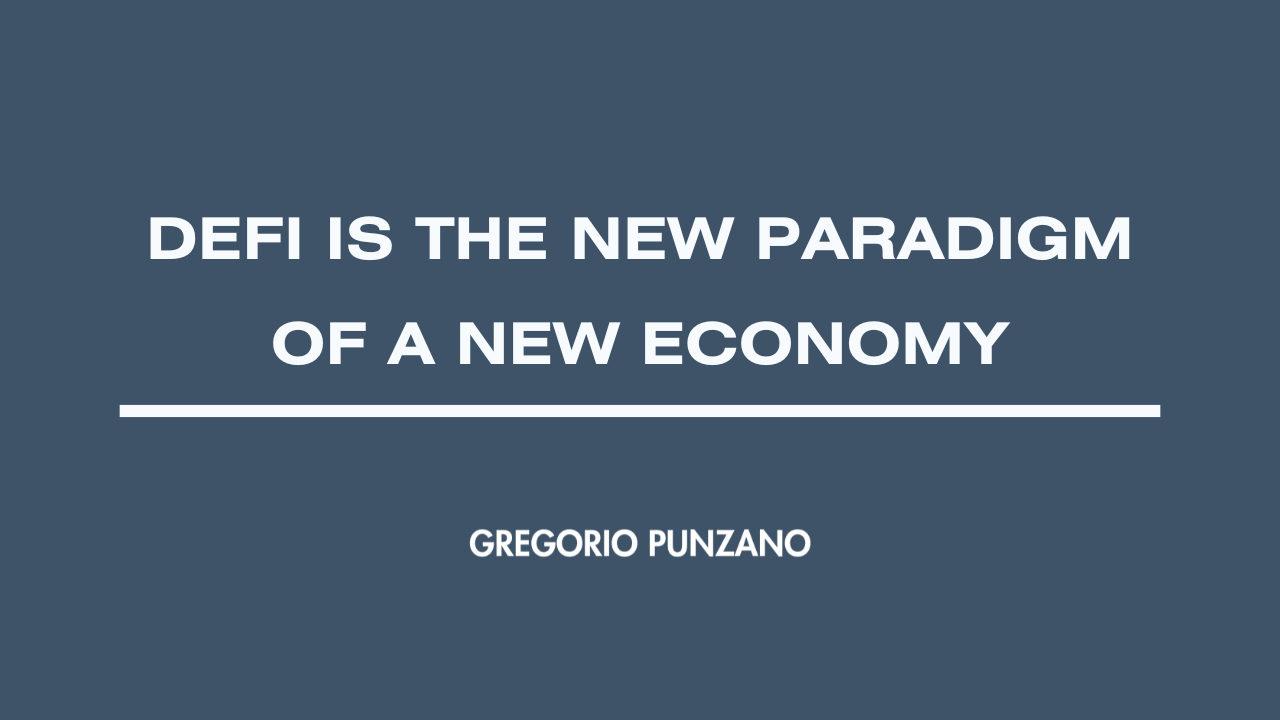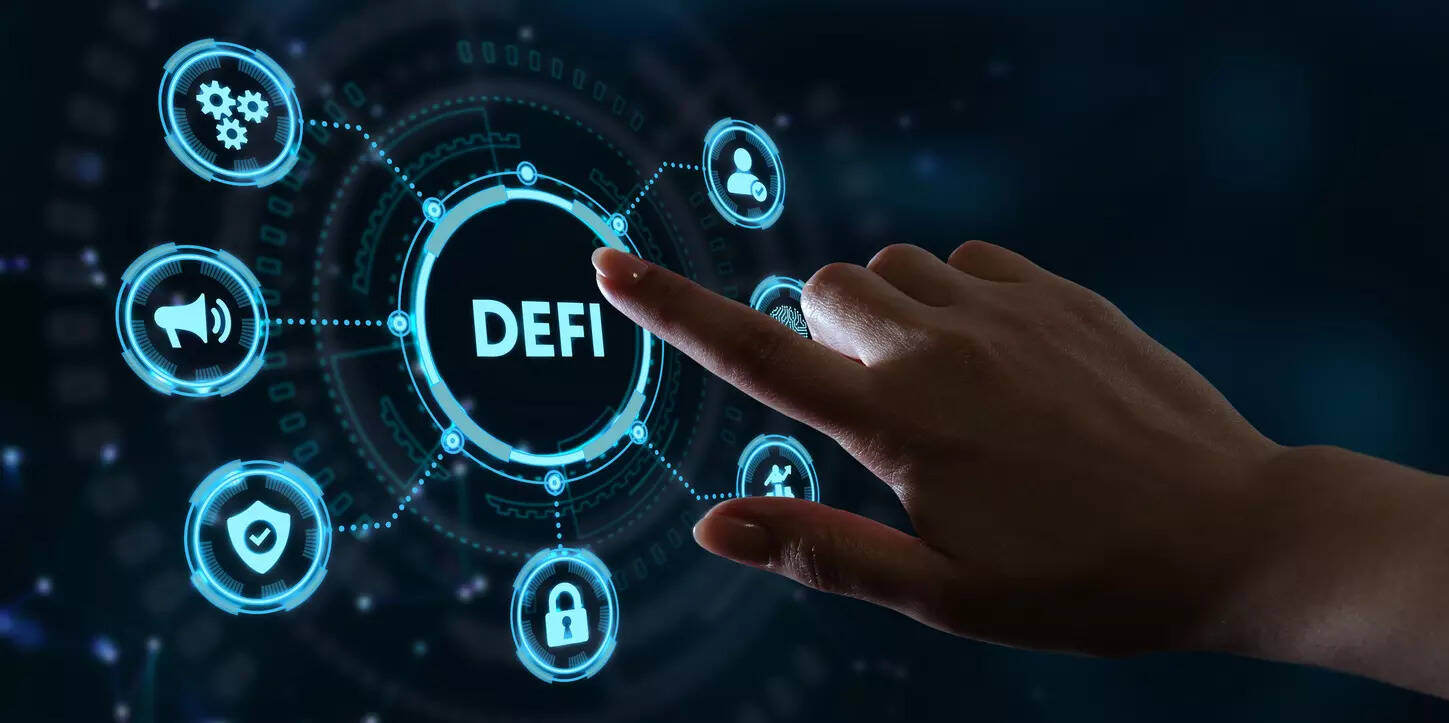The financial landscape has undergone a significant transformation with the advent of decentralized finance (DeFi). Leveraging blockchain technology, DeFi has emerged as a groundbreaking financial system that operates without traditional intermediaries like banks. While its origins can be traced back to advanced economies, the DeFi revolution is now making inroads into developing economies, offering both opportunities and challenges for their financial ecosystems.

- Opportunities for Developing Economies
a. Financial Inclusion: One of the most prominent opportunities presented by DeFi in developing economies is the potential for greater financial inclusion. Traditional banking systems often fail to reach large segments of the population, leaving millions unbanked or underbanked. DeFi platforms can offer an accessible alternative, allowing individuals to participate in financial activities such as lending, borrowing, and investing without the need for a physical bank account.
b. Borderless Transactions: DeFi eliminates geographical barriers, enabling cross-border transactions without exorbitant fees or delays. This can significantly benefit migrant workers and businesses engaged in international trade by facilitating faster and cheaper remittances and payments.
c. Access to Capital: DeFi opens up new avenues for capital access, particularly for small and medium-sized enterprises (SMEs) that struggle to secure loans through traditional banks. By connecting borrowers and lenders directly, DeFi platforms offer more inclusive and transparent lending opportunities.
d. Empowering Financial Innovation: DeFi’s decentralized nature fosters an environment of innovation. Startups and developers in developing economies can build their financial products and services on existing DeFi protocols, reducing the barriers to entry and fostering a vibrant fintech ecosystem.
- Challenges for Developing Economies
a. Digital Divide: Despite the potential benefits, DeFi’s success in developing economies relies on widespread internet access and digital literacy. Unequal access to technology and internet connectivity can exacerbate existing disparities, leaving certain populations excluded from the benefits of DeFi.
b. Regulatory Uncertainty: The fast-paced nature of DeFi has outpaced regulatory frameworks in many developing economies. The absence of clear guidelines may deter potential investors and users due to concerns over security and compliance. Striking a balance between fostering innovation and protecting consumers will be crucial for DeFi’s sustainable growth.
c. Security Concerns: While DeFi protocols are built on secure blockchain technology, they are not entirely immune to hacks or smart contract vulnerabilities. Developing economies may lack the expertise to address and prevent these security risks effectively.
d. Volatility and Market Risks: DeFi platforms often deal with cryptocurrencies, which are inherently volatile assets. Users in developing economies might be exposed to significant market risks if they lack the financial knowledge or resources to manage their investments prudently.
- The Road Ahead: Navigating Opportunities and Challenges
To harness the full potential of DeFi in developing economies, several steps must be taken:
a. Education and Awareness: Governments, NGOs, and private organizations should collaborate to increase digital literacy and educate people about the benefits and risks of DeFi. This will empower individuals to make informed decisions and avoid potential pitfalls.
b. Regulatory Clarity: Policymakers need to engage with the DeFi community to develop clear and balanced regulations that encourage innovation while safeguarding investors and users. Collaboration between governments and blockchain industry experts is crucial to achieving this.
c. Infrastructure Development: Efforts must be made to improve internet infrastructure and access to technology, ensuring that a broader population can participate in DeFi platforms.
d. User Protection and Support: Platforms should implement robust security measures, and customer support services must be readily available to address concerns and queries.
FAQs about The Rise of Decentralized Finance (DeFi) in Developing Economies

- What is decentralized finance (DeFi)? Decentralized finance, or DeFi, refers to a financial system built on blockchain technology that operates without the involvement of traditional intermediaries like banks. It allows individuals to access financial services, such as lending, borrowing, and investing, directly without the need for a physical bank account.
- How does DeFi benefit developing economies? DeFi offers several benefits to developing economies, including enhanced financial inclusion, borderless transactions, access to capital for SMEs, and fostering financial innovation. It empowers unbanked or underbanked populations to participate in the financial system, facilitates faster and cheaper cross-border transactions, and opens up new lending opportunities for small businesses.
- What challenges does DeFi face in developing economies? Despite its potential, DeFi encounters challenges in developing economies, including the digital divide, regulatory uncertainty, security concerns, and market risks. Unequal internet access and digital literacy may hinder widespread adoption. The absence of clear regulations may deter investors, and security vulnerabilities could pose risks to users’ funds. Additionally, the inherent volatility of cryptocurrencies can expose users to market risks.
- How can developing economies address the challenges of DeFi? To address the challenges, developing economies can focus on education and awareness campaigns to improve digital literacy and inform users about the benefits and risks of DeFi. Policymakers should engage with the DeFi community to create balanced and clear regulations that promote innovation and protect consumers. Improving internet infrastructure and providing reliable customer support will enhance user participation and trust.
- Is DeFi a safe investment for individuals in developing economies? While DeFi offers exciting opportunities, it is essential for individuals in developing economies to exercise caution and educate themselves about the risks involved. As with any investment, there are potential market risks and security vulnerabilities to consider. Engaging with reputable DeFi platforms, conducting thorough research, and seeking professional advice can help individuals make informed investment decisions and mitigate potential risks.
